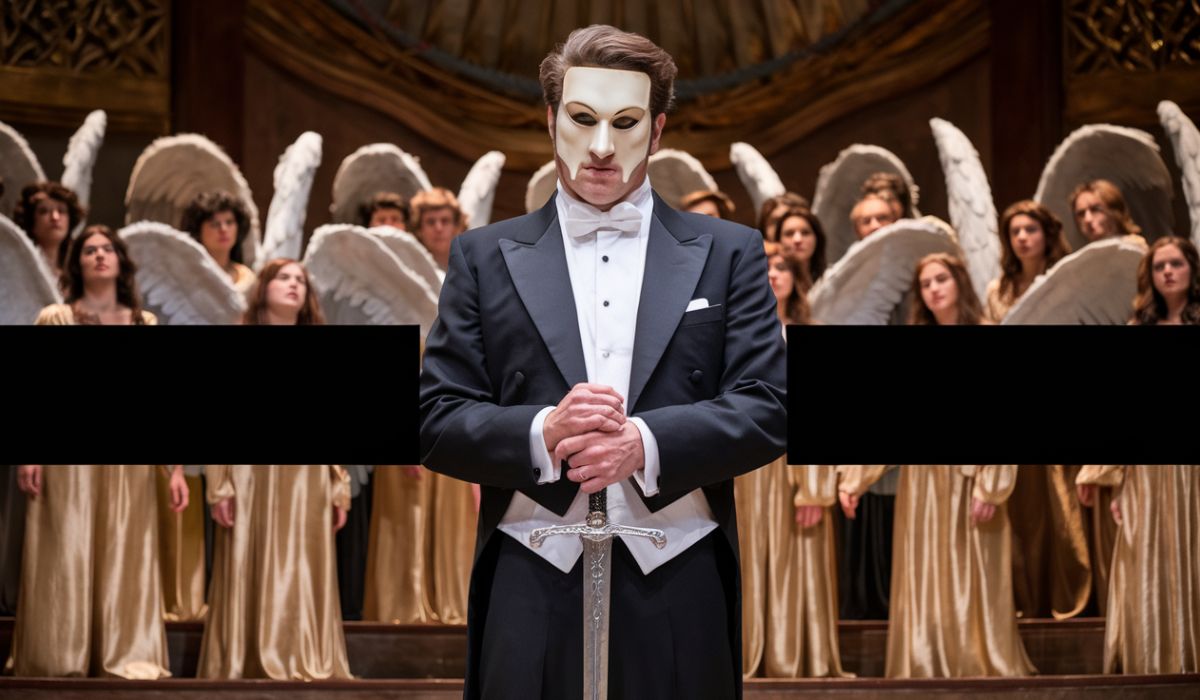Phantom of the Paradise isn’t just a movie—it’s a cultural phenomenon. This rock musical, directed by Brian De Palma, has captivated audiences since its 1974 release. However, the film has a long history of censorship, with various edits made for different markets. The censorship of Phantom of the Paradise is just as enigmatic as the film itself, igniting passionate debates among fans and critics. In this article, we’ll uncover the reasons behind these edits, their impact on the movie, and what makes this film so enduring.
What Is Phantom of the Paradise?
Phantom of the Paradise blends elements of The Phantom of the Opera, Faust, and The Picture of Dorian Gray, set to an electrifying rock-and-roll soundtrack. The story follows Winslow Leach, a talented composer betrayed and disfigured, who haunts the Paradise theater in a quest for revenge. This unique mix of horror, satire, and music has made it a cult classic.
A Brief History of the Film’s Release

Upon its 1974 debut, Phantom of the Paradise struggled at the box office in most regions but gained an immense following in Winnipeg, Canada. Over time, it developed a loyal fanbase, but its journey wasn’t without hurdles—including censorship.
Why Was Phantom of the Paradise Censored?
The censorship of Phantom of the Paradise was influenced by cultural sensitivities, regional standards, and legal concerns. Some edits toned down violence, while others removed controversial dialogue or suggestive content deemed inappropriate for certain audiences.
Key Scenes That Faced Cuts
Several scenes were altered or removed across different versions, including:
- Winslow’s Disfigurement Scene – The graphic nature of his accident was softened in some releases.
- Swan’s Faustian Bargain – The darker elements of his deal were minimized in certain edits.
- Performance Sequences – Some musical numbers were trimmed due to suggestive content.
The Impact of Censorship on the Story
Censorship often affects more than just specific scenes—it can change the tone and emotional impact of a story. In Phantom of the Paradise, the cuts reduced the intensity of Winslow’s transformation and softened Swan’s sinister nature, altering how audiences perceived the characters and themes.
Fan Reactions to the Censorship
Fans of Phantom of the Paradise are passionate about its legacy. Many were disappointed by the censorship, arguing that it undermined the film’s artistic integrity. However, others focused on the film’s music and performances, accepting the edits as minor adjustments.
Comparisons with Other Censored Films
Phantom of the Paradise is not alone in its censorship struggles. Cult classics like A Clockwork Orange and The Rocky Horror Picture Show faced similar challenges. Examining these cases highlights how societal norms influence what is deemed acceptable in film.
Are Uncensored Versions Available?
For purists, the biggest question remains: Is there a fully uncensored version of Phantom of the Paradise? While some DVD and Blu-ray editions include restored scenes, a completely uncut version has yet to be officially released.
How Censorship Contributed to Cult Status
Ironically, censorship has helped Phantom of the Paradise achieve cult status. The controversy surrounding edited content has only fueled curiosity and discussion, making it even more intriguing for new audiences.
The Lasting Legacy of Phantom of the Paradise
Almost five decades later, Phantom of the Paradise continues to captivate audiences as a cherished cult classic. Its fusion of satire, music, and gothic themes ensures it stands out in film history. Whether censored or not, the movie continues to inspire and resonate with audiences.
Brian De Palma’s Thoughts on Censorship
Director Brian De Palma has occasionally commented on the challenges he faced during the film’s production and release. While he has expressed frustration with the cuts, he also acknowledges the enduring love fans have for the movie.
Lessons for Modern Audiences
In the age of streaming and director’s cuts, censorship might seem like a thing of the past. However, Phantom of the Paradise serves as a reminder of the ongoing importance of artistic freedom and the societal forces that shape media.
FAQs: Answering Your Burning Questions
1. Why was Phantom of the Paradise censored?
It was censored due to graphic content, controversial themes, and regional sensitivities at the time of its release.
2. Is there a fully uncensored version of the film?
Some restored versions exist, but a complete uncut edition has not been officially released.
3. How did censorship impact the film’s story?
The edits diluted key moments, affecting the emotional and narrative depth of the film.
4. How does Phantom of the Paradise compare to other cult classics?
It shares thematic and stylistic similarities with films like The Rocky Horror Picture Show and A Clockwork Orange, both of which also faced censorship.
5. Why is the film still popular despite being censored?
Its unique mix of music, satire, and gothic storytelling, along with its dedicated fanbase, keeps it relevant today.